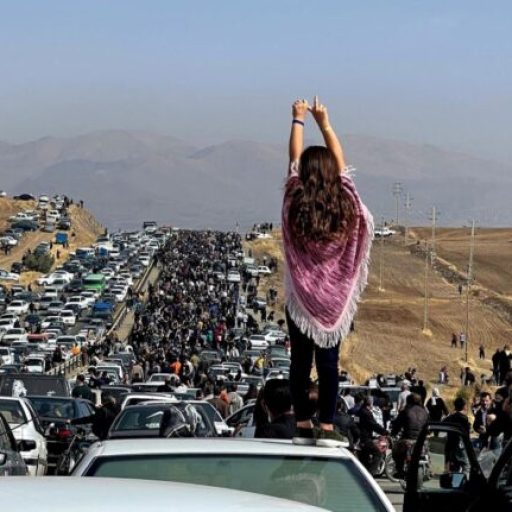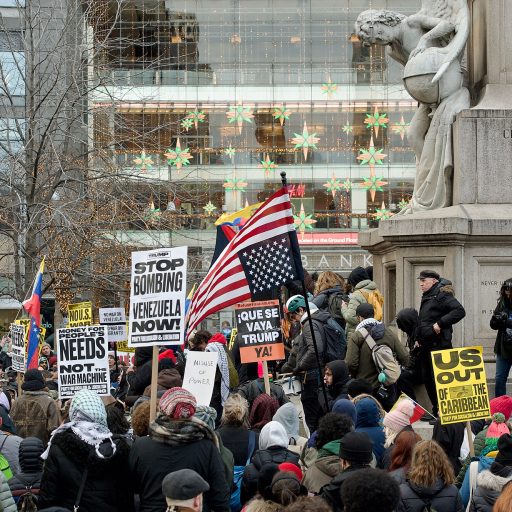April 2022
El Salvador is going through very difficult times, as a result of an accelerated offensive by the government itself against the democratic system, the constitutional order, and the human rights of Salvadorans. An authoritarian, anti-democratic and unconstitutional political regime has been established in the country, headed by Nayib Bukele, his family group and his closest associates, who lead the political party called Nuevas Ideas (New Ideas).
Bukele, presenting himself as a millennial politician and intoning a frenzied discourse of hate, managed in less than 3 years to destroy the democratic and social advances achieved by El Salvador, with the materialisation of the Peace Accords of January 1992, signed in Mexico City. Indeed, after the end of the civil war, which claimed no less than 70,000 lives, the Salvadoran people made enormous efforts, overcoming many difficulties, to gradually build and consolidate an increasingly democratic political system.
The dark era of repressive militarism, which for decades annulled human rights and civil liberties, persecuted, murdered, imprisoned, disappeared, tortured and exiled tens of thousands of people, was left behind. It is no coincidence that the United Nations Truth Commission entitled its report on decades of atrocities committed by the state, “From madness to hope”, thus symbolising, on the one hand, the horrors of the military dictatorship and, on the other, the promising path that was opening up for El Salvador with the beginning of an era of democratic freedoms and respect for the human person.
With the arrival of the Farabundo Martí National Liberation Front (Frente Farabundo Martí para la Liberación Nacional FMLN) to the government in 2009, a political model that focused on active citizen participation and the establishment of strong and independent institutions capable of promoting and guaranteeing human rights for all was strengthened. The government concentrated on implementing public policies focused on overcoming poverty and inequalities of all kinds, creating social safety nets for the most disadvantaged, and making the exercise of public power a transparent and open process, incompatible with any kind of corruption.
After Bukele and his group came to power, the country fell back into the authoritarianism of the past, this time with a strong populist orientation, with clear neo-fascist traits. Bukele, who ran in the elections as the icon of “anti-politics”, promising easy and instant solutions to old and complex problems, seduced a significant sector of Salvadoran citizens with his message of supposed renovation.
But once in power, he immediately set about dismantling the democratic and constitutional order. It did not take him long to take off his mask as a renovating and digital politician and set about destroying the democratic and social advances forged by historic popular struggles. Today in El Salvador, democratic institutions have been dismantled, under the thrust of Bukele’s dictatorial vision, who openly claims that he needs to concentrate all state power in his hands. Concepts such as checks and balances, independence of powers, impartiality of the justice system, respect for human rights, do not exist in his dictatorial mind.
From the Presidency of the Republic, Bukele has installed a discourse of hatred and demonisation towards any citizen, civil association, social movement or trade union or political organisation that opposes him. Thus, society has been alarmed to see how Bukele himself promises to “burn politicians alive”, or “send judges and magistrates to be shot”, or describe as “damned” all those who criticise his openly authoritarian and law-breaking conduct. In his dictatorial outbursts he did not hesitate to order the military assault in March 2020 on a Congress he did not control, and to claim that God was directing him.
In his authoritarian ravings he promotes a peculiar historical revisionism and strives to disqualify the decades-long struggle of the Salvadoran people to win democracy and respect for human rights, describing that struggle and the historic Peace Accords as a “farce”. From his unpresentable messianism, the history of El Salvador is just beginning with his arrival in government.
The last electoral contest of February 2021, to elect deputies and municipal governments, was the clearest example of the breaking of the rules of the democratic game. In that electoral competition, the opposition was persecuted and muzzled, FMLN militants were murdered by thugs in the service of the regime, and opposition parties had no access to state funding to carry out their campaigns and publicise their electoral offers. At the same time, Bukele used the entire state apparatus, including budgets, to campaign for the ruling party.
Bukele and his close followers have an aversion to the principles that underpin a modern democratic society and state. When he barely had control of Congress, Bukele ordered the dismissal, on the very day of the installation of the new legislature, and blatantly breaking with the Constitution of the Republic, of the magistrates of a Chamber of the Supreme Court of Justice that, albeit timidly, moderated the regime’s authoritarian excesses and abuses. In barely two hours, Bukele’s Congress, without any process whatsoever, and under the bizarre accusation of “hindering the administration of the President of the Republic” (sic), proceeded to dismantle the Constitutional Chamber and set up another one to suit the President, with lawyers unconditional to Bukele, who did not even meet the requirements demanded by the Constitution to be members of the Supreme Court of Justice.
In the same act, they dismissed the Attorney General of the Republic, an obscure character from the same ultra-right who, caught between his hesitation to serve Bukele or submit to the guidelines of the US Embassy, did not end up enjoying the absolute confidence of the ruler, unbridled in his career of abuses of authority and corruption.
Thus, in just one night, Bukele perpetrated a coup d’état against the Republic and dismantled the so-called constitutional rule of law. He eliminated any counterweight to his dictatorial excesses and destroyed the fragile institutionality of the Salvadoran state, leaving citizens in total defencelessness, without any guarantee for their rights. The situation has deteriorated so much that the highest representative of the Salvadoran Catholic Church, Cardinal Gregorio Rosa Chávez, has pointed out that El Salvador is experiencing a veritable political earthquake, which put an end to the separation and independence of powers and left citizens without institutions or officials to trust.
Having secured full control of the judicial system, Bukele immediately ordered a new repressive onslaught against leaders and former officials of the FMLN governments. Under fabricated accusations and using the judicial system in a factious manner, Bukele has set out to weaken the left and any social or political organisation that questions him, instilling terror in the citizenry, as well as maintaining a massive smear campaign against the two governments that the left led between 2009 and 2019.
This is how different leaders of the FMLN are imprisoned today, subjected to inhumane and degrading conditions of detention, while dozens are subjected to arbitrary and manifestly unjust trials, which nullify their constitutional rights to freedom, security, justice and dignity. The exile of political and social leaders has become a daily occurrence in El Salvador’s current reality. Two former Presidents of the Republic, a former President of Congress, and numerous former members of the Cabinets of the time have had to seek political asylum abroad.
s
El Salvador is the scene of the Central American edition of what has come to be known in the South of the American continent as lawfare, judicial warfare, or the judicialisation of politics, targeting prominent progressive political leaders. This perverse strategy has the objective of annulling and eventually imprisoning, through unfounded criminal charges, prominent leaders, accompanied by the intensive use of the media to defame the victims, and then moving on to open criminal prosecution.
Journalists, intellectuals, human rights activists, business leaders, religious leaders and honest judges have not escaped this political persecution orchestrated by Bukele. Even his own dissidents, who are beginning to distance themselves from the anti-democratic onslaught of the man who until yesterday was their leader, have begun to experience the consequences of questioning him, even if only in private.
Following the script followed by other dictators in Salvadoran history, Bukele recently ordered his lawyers, usurpers of the Constitutional Chamber, to enable his immediate re-election, despite the fact that the Salvadoran Constitution prohibits it in several of its articles, considered in the doctrine as “stony clauses”. A Supreme Electoral Tribunal, subject to Bukele, immediately announced that it was ready to comply with this unusual violation of the Constitution and that it would register Bukele as a candidate as soon as he requested it.
In the same onslaught against constitutional institutions, Bukele ordered his Congress to dismiss a third of the judges and magistrates of the Salvadoran judicial system, in order to finish taking over the nation’s judiciary with his followers. At the same time, the regime maintains an open and vociferous attack on non-governmental organisations and social leaders who question its blatantly unconstitutional and corrupt conduct. It openly threatens NGOs with legislation that would prevent them from receiving funding for their work in civic education, human rights advocacy and support for the poorest communities.
There is further evidence of the grotesque authoritarian drift El Salvador is experiencing today. Legislation and institutions guaranteeing citizens’ free access to public information have been effectively overturned. Tens of thousands of state employees have been dismissed from their jobs, without any argument whatsoever. Laws have been passed to shield the regime’s corruption with a shield of impunity. Extremely worrying is the accelerated militarisation of the country, where the size of the armed forces is doubling, while spending on education and health is simultaneously being cut. Like the armed forces, the National Civil Police, created after the Peace Accords, has become a repressive arm of the regime, violating its doctrine of apoliticism and respect for human rights.
Bukele’s erratic decisions have led the country to a dead end in terms of public finances. The country has exceeded any external debt limit, with the debt-to-GDP ratio approaching 100 per cent. In September 2021, the law ordered by Bukele came into force, turning the Salvadoran economy into a guinea pig for the cryptocurrency Bitcoin and, in the process, transforming the country into a potential platform for laundering illicit money. This inconsult, suspicious and senseless decision by the regime, which is rejected by the overwhelming majority of the population, seeks at all costs to bring the country into the game of financial speculation linked to cryptocurrencies, and has shot El Salvador’s country risk in international financial markets to unprecedented levels, surpassing countries such as Argentina, and has thrown overboard the regime’s attempts to obtain an urgent financial support package from the IMF. A likely default on El Salvador’s debt by the end of 2022 looms on the horizon.
Since the end of 2021, the sum of abuses and violations of the people and their rights have unleashed the largest protest mobilisations of the present century. The citizens’ rejection of the Bitcoin imposition, plus the deteriorating conditions of the family economy, have only increased the spirit of protest of significant social sectors, of different political orientations.
An essential element to address is the situation of citizen security. According to well-founded investigations by independent journalists and experts in the field, the regime managed to reach secret agreements or pacts early on with criminal groups and their leaders, many of whom are in prison, and who have kept Salvadoran society under ferocious attack in recent decades. Such agreements, in exchange for accepting criminal control of large urban and semi-rural areas and concessions of various kinds to the gangs, made it easier for Bukele to offer the public a false image of a decrease in murders, presented as the success of a non-existent Territorial Control Plan. Meanwhile, the number of missing persons multiplied and extortion of homes, communities and businesses of all sizes increased.
Pacts with various criminal groups functioned with relative stability until a few weeks ago. However, an escalation of killings against civilians in March suggests that such pacts may have been broken, or at least severely complicated. The regime resorted to decreeing a state of emergency, suspending constitutional rights and guarantees and unleashing massive raids in popular neighbourhoods and communities, capturing more than 15,000 people, the vast majority of them unconnected to criminal activity, in the first few weeks. All this in the midst of a furious governmental discourse, headed by Bukele himself, which legitimises the denial of human rights and glorifies punitive populism. This State of Emergency was extended for another 30 days in the last week of April, amidst massive reports of mass arrests of innocent citizens and practices of cruel, inhuman and degrading treatment by police, military and prison authorities.
Meanwhile, Bukele accuses the international community of conspiring against his government for distancing itself from his regime and at times openly censuring its anti-democratic practices. The UN Secretary General, as well as the High Commissioner for Human Rights and several of the Special Rapporteurs of the universal protection system have spoken out unequivocally. The Inter-American Commission on Human Rights and some governments, as well as several international organisations focused on the protection of human rights and democracy, have also expressed their views in the same vein.
At this dramatic moment in El Salvador, when a dictatorial regime with typically fascist traits has been installed in practice, denying the Constitution and democratic freedoms and rights, the Salvadoran people call for international solidarity in order to confront and finally defeat the authoritarian onslaught. The anti-democratic regression, tinged by scandalous and now daily acts of corruption, led by Bukele and his entourage, is today the greatest threat to Salvadoran society, with negative repercussions for the entire region. The democratic, social and economic collapse that El Salvador is experiencing is generating impressive waves of people seeking to migrate, given the threats to their security and the lack of opportunities.
In these circumstances the world must know the truth of what is happening in El Salvador. Its people do not deserve to return to a dark and terrifying past. Too many lives were taken in past decades to defeat a ferocious and inhumane dictatorship, to fall back into the scenario of a regime that tramples with impunity on citizens’ freedoms and denies essential rights to the people. It is vital to count, as in the past, on the solidarity and accompaniment of the people, the media, intellectuals, social movements and political organisations, as well as democratic governments in Latin America and around the world.
FMLN Committee in Exile





![Headline: Hier bitte das Thema [ Headline] 24.10.25, Lucerne, Switzerland, Progressive Alliance PA women conference](https://progressive-alliance.info/wp-content/uploads/elementor/thumbs/MAW251024mw859033AdobeRGB-scaled-recq0qxu9kb6pncdi2i7wo6ttne03ppnu58zxxdc74.jpg)
![Headline: Hier bitte das Thema [ Headline] 25.10.25, Lucerne, Switzerland, Progressive Alliance PA women conference](https://progressive-alliance.info/wp-content/uploads/elementor/thumbs/MAW251025mw860402AdobeRGB-scaled-recs8kegm3kqlleif2kq512xsjz2qfl3t7kc0t0tts.jpg)